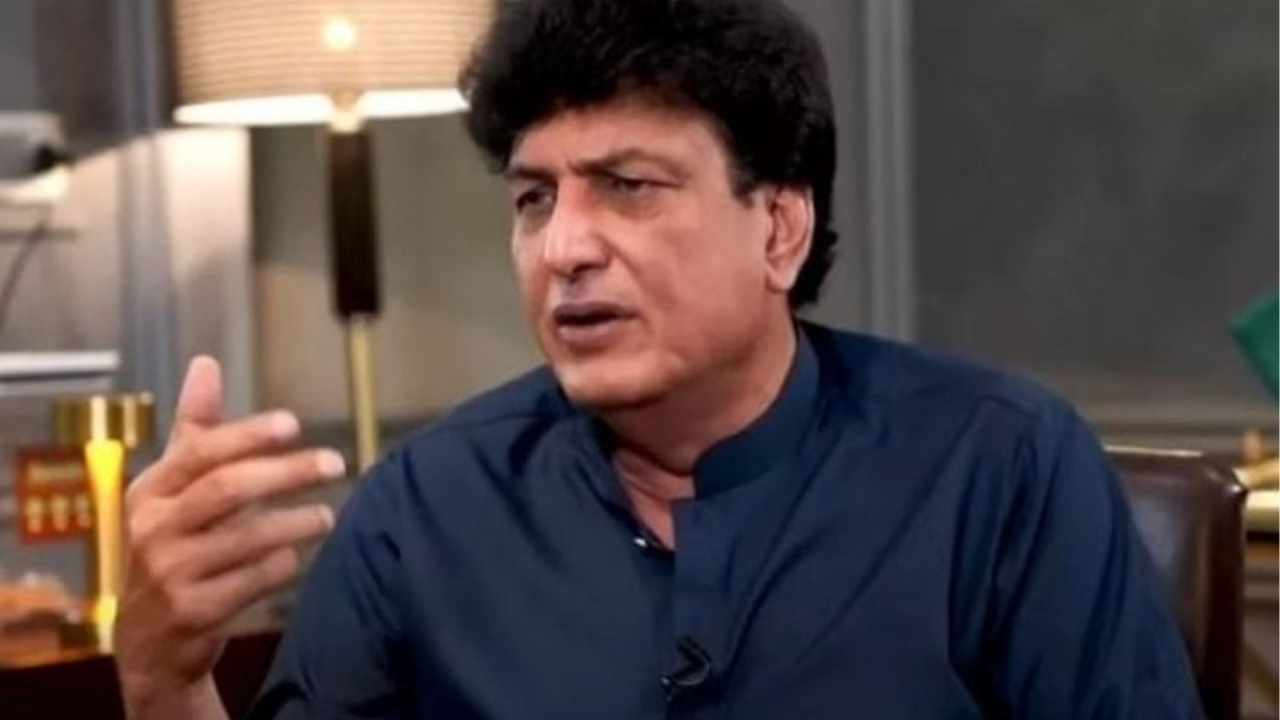The Khalil-ur-Rehman Qamar controversy has once again ignited debates across social media after the renowned playwright defended his portrayal of a romantic relationship between a teacher and a student in his new drama Main Manto Nahi Hoon. Known for his outspoken nature and bold views, Qamar’s latest remarks have drawn both criticism and support, making him a trending topic in Pakistan’s entertainment circles.
The Drama and the Controversial Scene
Khalil-ur-Rehman Qamar, one of Pakistan’s most popular drama writers, came under fire for depicting an emotional connection between a teacher and her student. Critics argue that such a storyline is inappropriate and sends the wrong message to viewers. However, Qamar has strongly defended his creative choice, claiming that there is nothing immoral or unlawful about showing love between two adults.
In his statement, Qamar said, “I have shown love between a teacher and a student in the play, and making love is not a crime. Both are non-mahrams and can get married.” His comments immediately became the center of the Khalil-ur-Rehman Qamar controversy, sparking discussions about creative freedom, societal taboos, and the boundaries of storytelling.
Qamar’s Defense and Response to Critics
In his trademark aggressive tone, Khalil-ur-Rehman Qamar made it clear that he would not apologize for his artistic vision. He said, I have shown love, not an affair. My characters are unmarried, and their love is pure. This is not an affair between a married teacher and a student.
His statement highlighted his intent to portray affection rather than immorality. Qamar added that there is a significant difference between love and an affair,emphasizing that critics are misinterpreting his work. The Khalil-ur-Rehman Qamar controversy gained momentum when he used harsh language against his detractors, saying, There is a difference between criticizing and barking. Criticism leads to improvement.v
Public Reaction and Social Media Uproar
The controversy has divided social media users. Some defended Khalil-ur-Rehman Qamar’s right to creative expression, arguing that art should reflect all aspects of society, including unconventional relationships. Others, however, condemned the portrayal, calling it irresponsible and disturbing.
On X (formerly Twitter), Facebook, and Instagram, hashtags related to the Khalil-ur-Rehman Qamar controversy began trending, with users debating whether the storyline romanticizes an unethical relationship or simply portrays a human emotion in a societal context.
Several users noted that teacher-student relationships are considered inappropriate due to the inherent power imbalance. Others countered that once both individuals are adults, such a relationship—if portrayed respectfully—should not be deemed immoral.
Real-Life Examples Used by Khalil-ur-Rehman Qamar
In his defense, Qamar referenced real-life examples from Pakistani society to justify his storyline. He said that many female teachers have married their students and that such relationships exist in reality. I know many people like that,he claimed.
He also pointed out that older individuals continue to find love and companionship, stating, Even 70-year-old men and women are getting married in society. Why is my character being criticized when I am portraying something that already exists in our culture?
This statement further fueled the Khalil-ur-Rehman Qamar controversy, as critics accused him of normalizing relationships that could be seen as inappropriate in professional settings.
The Broader Debate: Art, Morality, and Freedom
The ongoing Khalil-ur-Rehman Qamar controversy has sparked a broader debate about the role of art in addressing taboo subjects. Should writers and artists be free to portray every aspect of human relationships, or should certain topics remain off-limits due to moral and cultural sensitivities?
Supporters of Qamar argue that his work often mirrors real-life complexities and challenges societal norms, which is the essence of powerful storytelling. They believe that art should encourage conversation rather than conform to traditional expectations.
Critics, however, argue that Qamar’s aggressive tone and controversial themes often overshadow his storytelling skill. They claim that his statements disrespect legitimate criticism and that his approach fuels unnecessary outrage.
Qamar’s Legacy and Ongoing Impact
Despite facing multiple controversies in the past — from gender debates to fiery television interviews — Khalil-ur-Rehman Qamar remains one of Pakistan’s most successful and influential writers. His works like Meray Paas Tum Ho and Pyar Ke Sadqay have earned massive viewership, proving his ability to engage audiences through emotional and bold storytelling.
The current Khalil-ur-Rehman Qamar controversy once again highlights his unapologetic style and willingness to challenge boundaries. Whether one agrees with his views or not, Qamar continues to dominate Pakistan’s drama industry and social discourse alike.
The Khalil-ur-Rehman Qamar controversy surrounding Main Manto Nahi Hoon has reignited discussions about art, morality, and freedom of expression in Pakistani media. While his remarks have angered many, they have also opened a window for critical discussion about love, social norms, and how far art can go in reflecting reality.
In the end, the debate over Qamar’s creative choices may fade, but his ability to spark nationwide conversations ensures that his name — and controversies — will continue to shape Pakistan’s cultural landscape for years to come.



